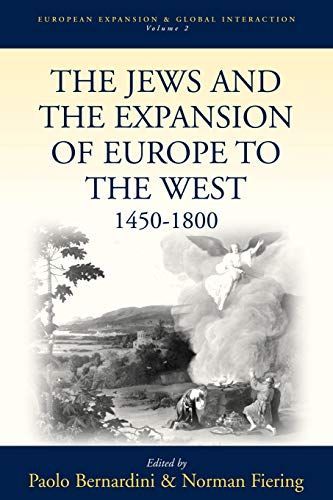
The Jews and the Expansion of Europe to the West, 1450 to 1800
"This impressive volume shows that the history of minorities - specifically that of a diaspora - can open up completely new perspectives on the 'great' questions and developments of general history." - Zeitschrift für Geschichtswissenschaft "... this magnificent and much-needed volume ... is remarkably free, factual or interpretive." - American Jewish History "The age-old tension between value-free history and history with a moral is implicit throughout this fine volume." - The Jerusalem Report "A substantial contribution to the scholarship on Indian [Native-American]-European relations ... Specialists will find new nuggets to challenge existing interpretations, while readers new to the topic will find useful introductions and more detailed case studies that give some idea of the current issues under scholarly debate. All readers will experience the benefits of looking at one topic comparatively across vast amounts of space and time." - Itinerario Jews and Judaism played a significant role in the history of the expansion of Europe to the west as well as in the history of the economic, social, and religious development of the New World. They played an important role in the discovery, colonization, and eventually exploitation of the resources of the New World. Alone among the European peoples who came to the Americas in the colonial period, Jews were dispersed throughout the hemisphere; indeed, they were the only cohesive European ethnic or religious group that lived under both Catholic and Protestant regimes, which makes their study particularly fruitful from a comparative perspective. As distinguished from other religious or ethnic minorities, the Jewish struggle was not only against an overpowering and fierce nature but also against the political regimes that ruled over the various colonies of the Americas and often looked unfavorably upon the establishment and tleration of Jewish communities in their own territory. Jews managed to survive and occasionally to flourish against all odds, and their history in the Americas is one of the more fascinating chapters in the early modern history of European expansion. Paolo Bernardini was a Fellow of the Princeton Institute for Advanced Study and of the Royal Historical Society. Currently he is Resident Director of the Padova Program, Boston University. Norman Fiering is the author of two books that were awarded the Merle Curti Prize for Intellectual History by the Organization of American Historians and of numerous articles. Since 1983, he has been Director of the John Carter Brown Library at Brown University.